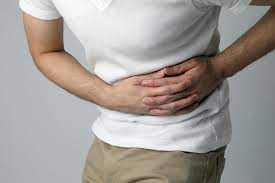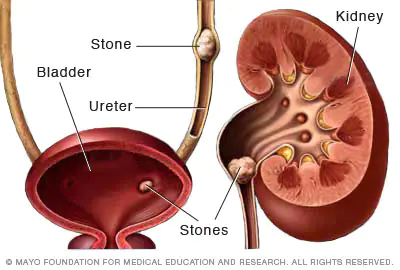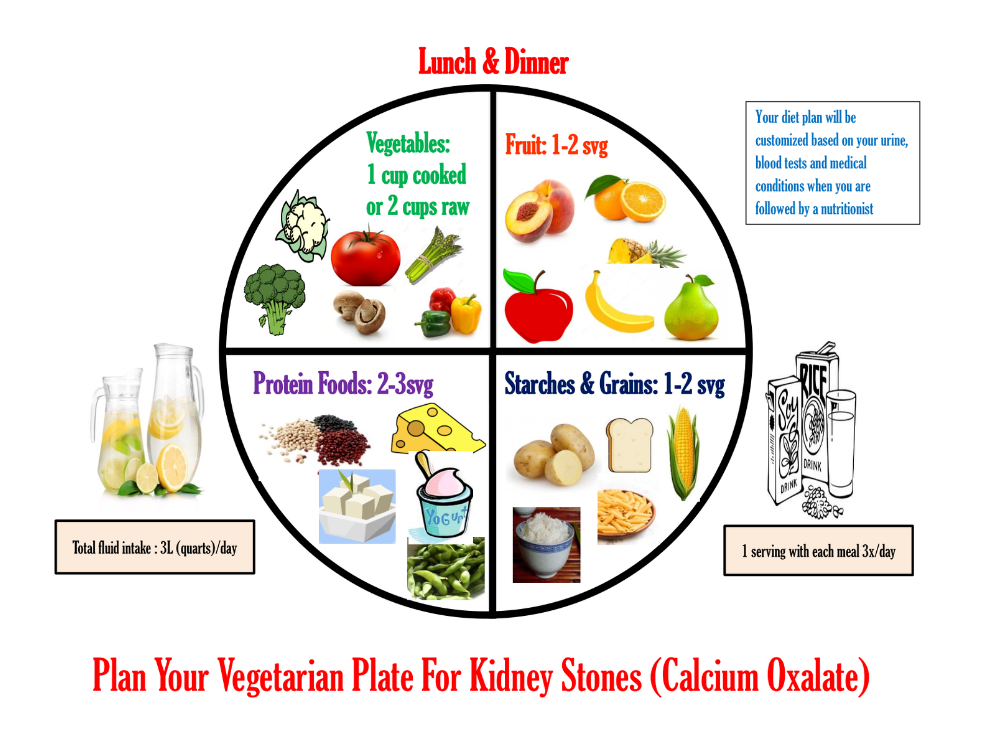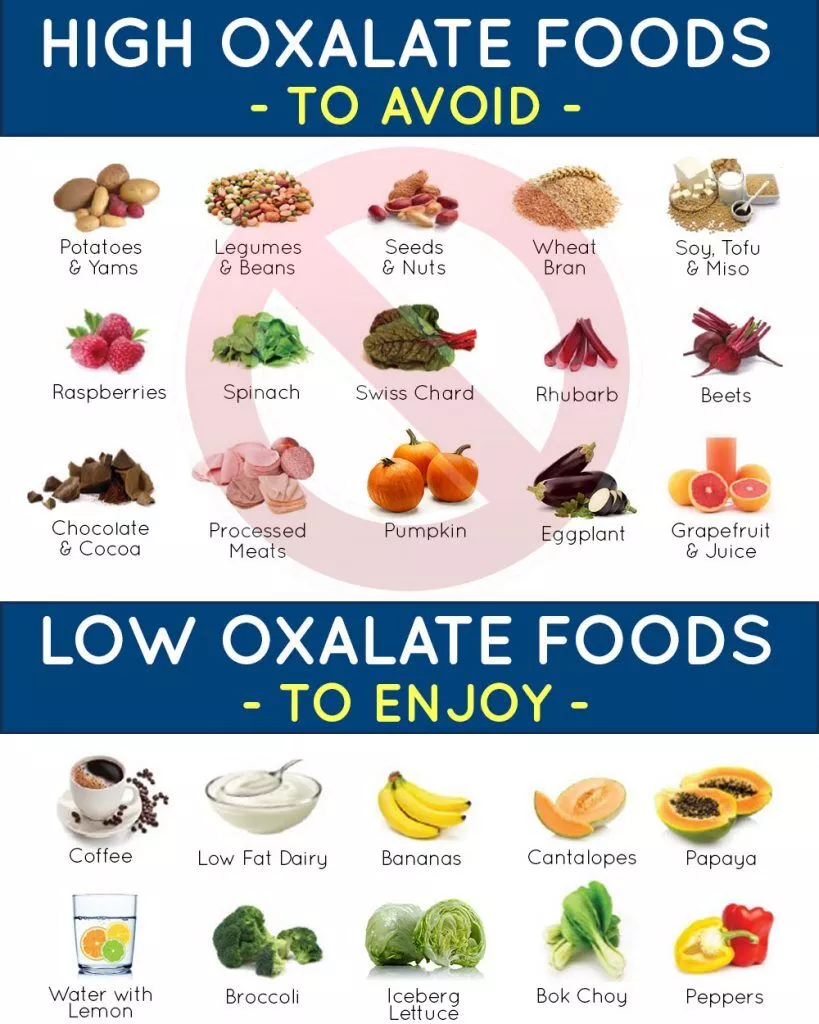
Everything You Need to Know About Kidney Stones
How common are kidney stones?
Each year, more than half a million people go to emergency rooms for kidney stone problems. It is estimated that one in ten people will have a kidney stone at some time in their lives.
The prevalence of kidney stones in the United States increased from 3.8% in the late 1970s to 8.8% in the late 2000s. The prevalence of kidney stones was 10% during 2013–2014. The risk of kidney stones is about 11% in men and 9% in women. Other diseases such as high blood pressure, diabetes, and obesity may increase the risk for kidney stones.
What causes kidney stones?
Kidney stones are caused by high levels of calcium, oxalate, and phosphorus in the urine. These minerals are normally found in urine and do not cause problems at low levels.
Possible causes include drinking too little water, exercise (too much or too little), obesity, weight loss surgery, or eating food with too much salt or sugar. Infections and family history might be important in some people. Eating too much fructose correlates with increasing risk of developing a kidney stone. Fructose can be found in table sugar and high fructose corn syrup.
Kidney stones are most likely to occur in people between the ages of 20 and 50.
Different factors can increase your risk of developing a stone. In the United States, white people are more likely to have kidney stones than Black people.
Sex also plays a role. More men than women develop kidney stones, according to the National Institute of Diabetes and Digestive and Kidney Diseases (NIDDK)Trusted Source.
A history of kidney stones can increase your risk. So does a family history of kidney stones.
Other risk factors include:
- dehydration
- obesity
- a diet with high levels of protein, salt, or glucose
- hyperparathyroid condition
- gastric bypass surgery
- inflammatory bowel diseases that increase calcium absorption
- taking medications such as triamterene diuretics, antiseizure drugs, and calcium-based antacids
Type
There are four main types of stones:
- Calcium oxalate: The most common type of kidney stone which is created when calcium combines with oxalate in the urine. Inadequate calcium and fluid intake, as well other conditions, may contribute to their formation.
- Uric acid: This is another common type of kidney stone. Foods such as organ meats and shellfish have high concentrations of a natural chemical compound known as purines. High purine intake leads to a higher production of monosodium urate, which, under the right conditions, may form stones in the kidneys. The formation of these types of stones tends to run in families.
- Struvite: These stones are less common and are caused by infections in the upper urinary tract.
- Cystine: These stones are rare and tend to run in families.

Treatment
Treatment for kidney stones varies, depending on the type of stone and the cause.
Small stones with minimal symptoms
Most small kidney stones won’t require invasive treatment. You may be able to pass a small stone by:
- Drinking water. Drinking as much as 2 to 3 quarts (1.8 to 3.6 liters) a day will keep your urine dilute and may prevent stones from forming. Unless your doctor tells you otherwise, drink enough fluid — ideally mostly water — to produce clear or nearly clear urine.
- Pain relievers. Passing a small stone can cause some discomfort. To relieve mild pain, your doctor may recommend pain relievers such as ibuprofen (Advil, Motrin IB, others) or naproxen sodium (Aleve).
- Medical therapy. Your doctor may give you a medication to help pass your kidney stone. This type of medication, known as an alpha blocker, relaxes the muscles in your ureter, helping you pass the kidney stone more quickly and with less pain. Examples of alpha blockers include tamsulosin (Flomax) and the drug combination dutasteride and tamsulosin (Jalyn).
Some kidney stones are as small as a grain of sand. Others are as large as a pebble. A few are as large as a golf ball! As a general rule, the larger the stone, the more noticeable are the symptoms.
The symptoms could be one or more of the following:
- severe pain on either side of your lower back
- more vague pain or stomach ache that doesn’t go away
- blood in the urine
- nausea or vomiting
- fever and chills
- urine that smells bad or looks cloudy
The kidney stone starts to hurt when it causes irritation or blockage. This builds rapidly to extreme pain. In most cases, kidney stones pass without causing damage-but usually not without causing a lot of pain. Pain relievers may be the only treatment needed for small stones. Other treatment may be needed, especially for those stones that cause lasting symptoms or other complications. In severe cases, however, surgery may be required.
How to prevent kidney stones

Proper hydration is a key preventive measure. It’s recommended to drink enough fluid to pass at least 2.5 liters Trusted Source of urine each day. Increasing the amount of urine you pass helps flush the kidneys.
You can substitute ginger ale, lemon-lime soda, and fruit juice for water to help you increase your fluid intake. If the stones are related to low citrate levels, citrate juices could help prevent the formation of stones.
Eating oxalate-rich foods in moderation and reducing your intake of salt and animal proteins can also lower your risk of kidney stones.
Your doctor may prescribe medications to help prevent the formation of calcium and uric acid stones. If you’ve had a kidney stone or you’re at risk for a kidney stone, speak with your doctor and discuss the best methods of prevention.
Foods that can cause kidney stones

In addition to drinking more water, making modifications to your diet could also help prevent kidney stones.
Here are some foods that you may need to limit Trusted Source or avoid:
- beef
- chicken
- pork
- organ meats
- fish
- shellfish
- eggs
- milk
- cheese
- yogurt
- processed meats
- fast food
- frozen meals
- salty snacks
Animal proteins like meat, poultry, seafood, and dairy products can increase levels of uric acid in your urine and increase the risk of developing kidney stones.
Reference: healthline, kidney.org

Thanks much…
Thanks a lot for article.
Thanks 🤍
1.7.2024
Morning 🌅🌅
သမိုင်းသစ်ရေးထိုးမယ်
အားလုံးချစ်သည် ဂုနိုက်
Done
Love you all
Well noted
thank you
အားလုံးချစ်သည်😍
Thank for sharing
Thanks
Thanks for your whole effort on this blog. My aunt really likes doing research and it’s obvious why. My partner and i learn all concerning the compelling tactic you provide simple tips and hints by means of your web site and as well inspire participation from some other people about this area so our princess is actually starting to learn a great deal. Enjoy the remaining portion of the year. You’re the one carrying out a remarkable job.
Thanks for sharing 🥰❤️
Hello, Neat post. There’s an issue along with your site in web explorer, may test this?IE nonetheless is the marketplace chief and a huge component to folks will pass over your excellent writing due to this problem.
I have realized that in digital camera models, exceptional detectors help to target automatically. The sensors regarding some cams change in contrast, while others utilize a beam involving infra-red (IR) light, specially in low lumination. Higher specification cameras from time to time use a mix of both systems and likely have Face Priority AF where the dslr camera can ‘See’ the face while keeping your focus only in that. Many thanks for sharing your notions on this website.
Thanks indeed for good
article.
I’m so in love with this. You did a great job!!
Previous health knowledge..thanks lots.
Thanks lots for health knowledge…
Much thanks for sharing health knowledge!
Thank you for sharing this article with me. It helped me a lot and I love it.
Thank
There are definitely a lot of details like that to take into consideration. That may be a nice level to deliver up. I supply the ideas above as common inspiration however clearly there are questions like the one you carry up where an important thing will probably be working in honest good faith. I don?t know if best practices have emerged around issues like that, but I’m positive that your job is clearly recognized as a good game. Each girls and boys really feel the impact of only a second抯 pleasure, for the remainder of their lives.
Thanks for sharing health knowledge 🙂
Thanks for sharing 🥰 lov ya all
Thanks for sharing 🥰
How to prevent kidney stones
As per the people who suffer from that problem , it is very painful.
Ok thanks
Kidney stones are common case now a days. Better to prevent
Precaution is better
This is interesting topic 👍
That is very interesting, You are an overly professional blogger. I have joined your rss feed and look ahead to in search of more of your fantastic post. Also, I’ve shared your site in my social networks!
Nice article
🆗💞🆗💞
Great topic!
Thanks you 💞
Yes 🥰
ကြော်လေပျော်
Thank you
သူစိမ်းကားကြီးဂူးဂူး
ကောက်စိတ်ဂူဂူ
လာပါတော့
GG.
ကြော်ကောင်းလို့ပျော်ကြောင်းပါ
ဂွတ်တယ်
ကျေးဇူးပါ ကြောငြာအတွက်
no ads
ဗဟုသုတရလို့ကျေးဇူးပါ
Ads 👌
GG ads good
✊✊✊
ကျေးဇူး ဂူးဂူး
Thank you for writing this post. I like the subject too.
Good😊
Ads, very good
Thank you for writing this article. I appreciate the subject too.
ဂူဂူ
Click.
🌟✨💥
A,a,a,ads
Thank you for your articles. I find them very helpful. Could you help me with something?
Fighting.
Ads 🥺🧐
Good Article.
Thank for your sharing
ကျမ္မာရေးအသိတိုး
💓💓💓💓💓
Thanks
Good article
Ads good 😉
Ads VG.
🥺💯💔
🎇
13,13,13*****🎂
🔊🔊🔊🧑💻💯
Thanks 💞💞💞
Okay
😋😋😋
🧑💻🔊🔊🔊🔊🔊🔊
Click time
Thanks for sharing 🧑💻🧑💻🧑💻❤️
👌👌👌✅😌✅😌👍❤️
Ads good.
✅✅✅👍👍👍💞
Thanks for sharing 🤩🤩🤩🤩🤩
Ok ပါ
Good 👍👍👍👍👍☺️☺️☺️
Good 👍👍👍😍😍😍
Thanks 👍👍👍👍👍👍
Thanks 👍
မန့်ဘာဖစ်.
🆗🆗🆗🧑💻🧑💻🧑💻👌👌😘
Thanks 😍😍😍😍😍
Ok 😊😊😊.
Thanks 👍👍👍👍👍☺️
👍👍👍💪💪💪💯🌺🌺🌺
👍👍👍💪💪🌺🌺🌺
Thanks ☺️👍👍☺️☺️☺️👍
Good article ☺️🙂🙂🙂👍
💯💯💯🔊🔊🔊💪💪💪
Thanks for sharing 😘😘😘
🍒😊👍👍🌃
Very good 🙂
Good article ☺️
Ads ok.
Okတော့မယ်.
☺️☺️☺️
Good
Done.
🍒🌃💪
🌃💪💪💪
Good 🌃
၊🍒💪✊
🍒☺️👍
😍😍😍
Thanks a lot for sharing knowledge!
Very good article! Thanks for sharing this valuable information.
၊Thank.
Nice article!! Thanks for sharing and your efforts. Good night everyone…
Thanks for sharing.